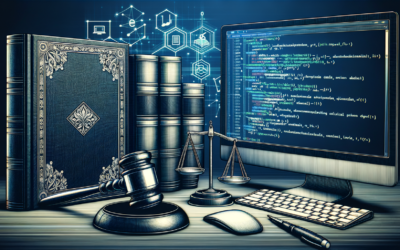Legal Analytics
In the midst of digital transformation, the legal sector is witnessing the awakening of Legal Analytics, an emerging field that corresponds to the use of data science to inform the legal process. These tools promise to transform the practice of law, offering professionals unprecedented precision and efficiency, while reshaping the traditional legal landscape.
What is Legal Analytics?
Legal Analytics involves applying analytical and big data methods to extract useful insights and patterns from legal texts and data. Lawyers and legal professionals can quickly identify trends and probabilities of legal success, and optimize their legal strategy with the help of advanced statistics. This includes the study of forensic data, risk management andpredictive justice.
The contribution of Legal Analytics to legal practice
Legal Analytics are revolutionizing the practice of law in a number of ways. Firstly, the predictive analytics found in predictive justice systems help professionals anticipate the potential outcomes of a case. What’s more, document management with platforms like eDiscovery can automate the search and analysis of digital evidence, saving significant time and costs.
Optimizing legal strategies
Through in-depth data analysis, Legal Analytics enables the development of a more precise and informed legal strategy. This improves decision-making by relying ondata rather than intuition or experience alone.
Risk management and compliance
Leveraging legal data also helps companies improve their risk management and ensure compliance with current regulations, such as GDPR. Contract lifecycle management tools are a perfect example of how legal analysis helps companies monitor their contractual obligations and reduce risk.
Operational efficiency
Legal Analytics can streamline law firms’ operations by automating repetitive tasks and concentrating resources where they are most needed. One example is the use ofArtificial Intelligence in document analysis, reducing the time spent on due diligence and contract analysis.
Frequently asked questions
Here is a list of frequently asked questions about Legal Analytics.
Will legal analytics replace lawyers?
No, although Legal Analytics increase efficiency and accuracy, they are used as support tools for lawyers, not replacements. The human dimension, interpretation and judgment based on experience cannot be fully substituted.
Getting started with Legal Analytics
It’s advisable to start by identifying the specific needs of your legal practice, then choose tools and platforms that provide relevant analysis. Solutions such as premium legal software can be a good place to start.
What’s the difference between Legal Tech and Legal Analytics?
Legal Tech refers to any technology that facilitates the practice of law, while Legal Analytics is specific to the analysis of legal data and decision-making based on this data.
Legal Analytics are an integral part of the digital evolution of the legal sector, ushering in a new era of efficiency, precision and data-driven decision-making. By integrating these technologies, legal players can maximize the impact of their expertise and ensure a more rigorous and proactive practice.




